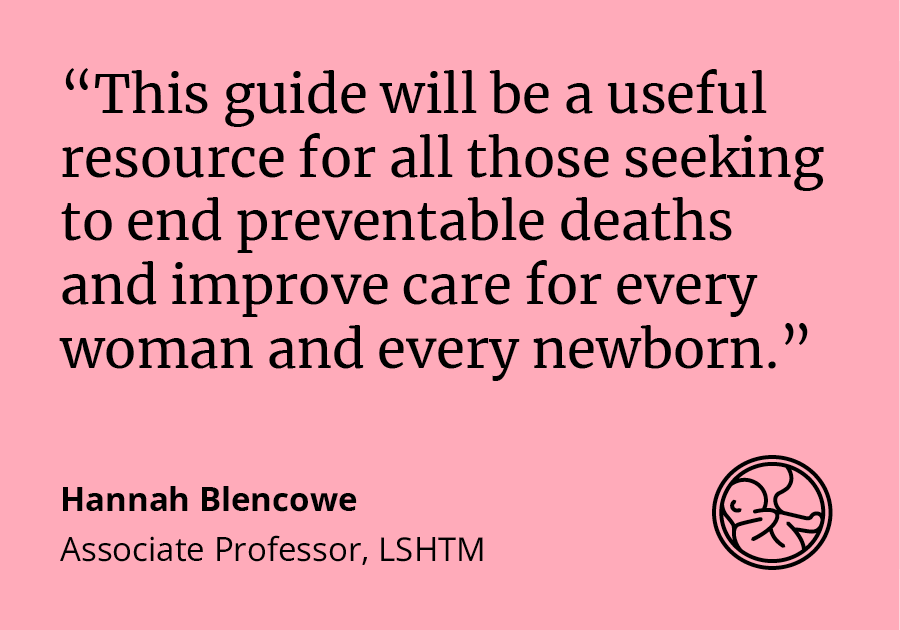
Over 5,000 babies are stillborn every day, affecting almost 2 million families each year, according to a new action-focused guide on preventing and addressing stillbirths along the continuum of care.
Preventing and Addressing Stillbirths Along the Continuum of Care: A Global Advocacy and Implementation Guide was produced by the International Stillbirth Alliance Stillbirth Advocacy Working Group, in partnership with the London School of Hygiene & Tropical Medicine (LSHTM), the United Nations Children’s Fund (UNICEF), the United Nations Population Fund (UNFPA) and US Agency for International Development (USAID).
The Global Advocacy and Implementation Guide brings together existing resources and guidance to inform planning, investments and programmes aimed at ending preventable stillbirths and improving care for all women and families who experience stillbirth. The guide is aimed at national and subnational governments, ministries of health, health professionals and health facility managers as well as parents, parent organisation and others who advocate for maternal and child health.
Dr Hannah Blencowe, Associate Professor at LSHTM and co-chair of the Stillbirth Advocacy Working Group, who co-led the development of the guide, said: “Progress in reducing stillbirths and improving care for affected families has been slow, in part due to lack of accessible guidance on addressing this important issue. In bringing together global guidance and best practice examples this guide will be a useful resource for all those seeking to end preventable deaths and improve care for every woman and every newborn.”
1.9 million babies were stillborn in 2021, equating to one stillbirth every 17 seconds. While some progress has been made globally to reduce stillbirths, wide disparities exist within and between countries with 89% of all stillbirths occurring in low- and middle-income countries (LMICs).
Two out of five stillbirths occur during labour yet most of these deaths are preventable with high-quality maternity care. However, little has been done to address gaps in access to timely care for mothers and their families.
The new guide includes links to global guidelines, toolkits, training resources and publications addressing stillbirth and care along the continuum of maternal and child health, highlighting where gaps in resources exist. It also includes case studies from a range of geographical contexts demonstrating what can be achieved.
The seven chapters include: opportunities to overcome challenges in addressing stillbirth; bereavement care; advocacy; programme implementation along the continuum of care; measurement of progress; and achieving the goal.
Our postgraduate taught courses provide health practitioners, clinicians, policy-makers, scientists and recent graduates with a world-class qualification in public and global health.
If you are coming to LSHTM to study a distance learning programme (PG Cert, PG Dip, MSc or individual modules) starting in 2024, you may be eligible for a 5% discount on your tuition fees.
These fee reduction schemes are available for a limited time only.
